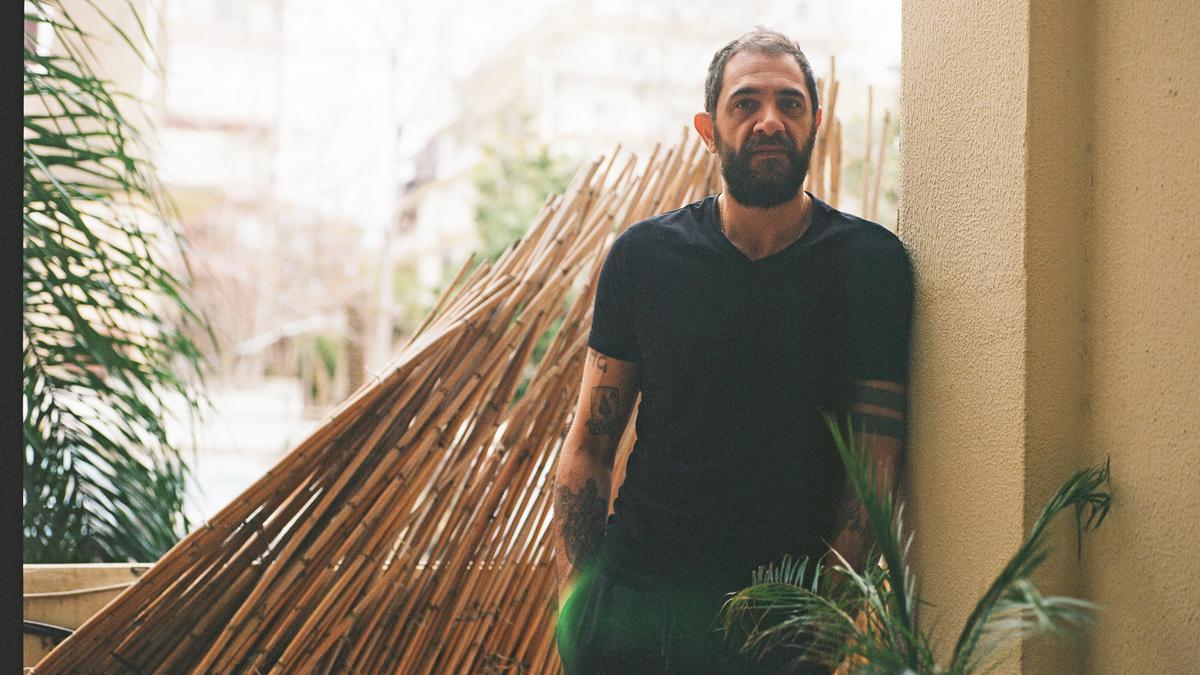
Amid the ongoing turmoil that has gripped Beirut, a city frequently caught in the crosshairs of conflict, emerges The Wanton Bishops, a band that reflects the indomitable spirit of Lebanon through its unique musical language. This group, led by charismatic frontman Nader Mansour alongside skilled guitarist Eddie Ghossein, represents a melange of dusty Americana intertwined with the heartbeat of their homeland, Lebanon. Forged in the crucible of resilience, this band originated nearly a decade ago, shaped by unexpected encounters and acts of defiance. Their music vibrates with the same enduring refusal to be silenced as their resilient city.
In a candid interview conducted amidst the harsh backdrop of Israeli bombings, where the threat of displacement looms large, Nader Mansour speaks candidly about preparing for an upcoming international tour. One of the scheduled stops is India, where they will perform at the Bandlands 2024 Music Festival in Bengaluru. As surreal as it sounds, the scenario feels almost appropriate for a band whose journey commenced with an unexpected twist — a fight.
Nader recalls with a chuckle the incident that marked the beginning of their captivating journey: “It actually began with two fistfights,” he reminisces with a hint of humor. “Eddie [Ghossein] found himself embroiled in a scuffle outside a club where I used to perform. I intervened and took the brunt of it, as one often does in such situations. A few weeks later, another fight broke out — I was innocent, of course — and Eddie was the one who bailed me out of jail.” Those skirmishes cemented a friendship, leading to the formation of what would become one of Lebanon’s most notable musical acts.
The marooned roots of The Wanton Bishops are steeped in a sound that blends the rustic charm of Delta blues with the unmistakable echo of Beirut’s soul. However, Nader insists it’s not about an equilibrium. “It’s not balanced. It’s complete confusion,” he admits. “Imagine grappling with your identity — you know where you come from, but the Internet exposes you to the world. I connected with the blues through this digital doorway, yet my essence remains undeniably Lebanese.”
His words resonate like a heavy burden — one he seems unsure of how to shoulder. For him, the band’s music is a reflection of his own quest for identity, rather than an attempt to reconcile cultural disparities. It’s a process he shares openly with the audience: “Like a chef cooking in front of an audience,” he quips, an analogy that captures the raw, unrefined honesty of their performances.
Honesty, Nader reveals, anchors the band. “I’ve never tailored my music for the radio. I refuse to create what I think people might like. I create what I feel. I create the music I long to hear but can’t find.” This philosophy has resonated, sparking a meteoric rise that has seen them step beyond Beirut’s local scene to carve an international presence. From intimate Lebanese clubs to stages across Europe, Turkey, and soon, India, The Wanton Bishops have left an indelible mark on the global stage.
.
Yet, lurking behind their international acclaim is the ever-looming shadow of Beirut’s instability. The city remains at a standstill, grappling with the dire consequences of renewed conflict. “We’re in a state of limbo,” Nader confesses. “It feels as though we’re merely waiting, ready to escape at any given moment.”
This pervasive sense of fragility transcends everyday life in Beirut, where mundane decisions are colored by the specter of conflict. “I’m accustomed to buying just a few cans of sardines weekly. Recently, I purchased 50, because that’s the mindset when you’re anticipating war,” Nader explains. He elaborates on how this continuous readiness takes a toll: “It’s taxing on your nerves. No one can be prepared all the time.”
Recent turmoil has claimed over a thousand lives, and forced more than 200,000 from their homes, further pushing many into neighboring Syria. Beirut, now a liminal space oscillating between survival and ruin. Nader reflects thoughtfully on music’s resistance: “By continuing to exist — that in itself is resistance.”
Despite his humility, there’s no denying that The Wanton Bishops belong to a burgeoning cadre of Lebanese artists capturing attention on a global scale, amidst the international focus on Lebanon due to non-musical issues. “It wasn’t a conscious effort,” Nader says of their expansive reach. “But being a Lebanese export, you inevitably carry your homeland with you.” He acknowledges the responsibility with levity: “Sometimes, I feel like the tourism minister,” he jokes, inviting people when circumstances allow.
Their global appeal has astounded even Nader. “When our Spotify statistics arrived last year, it was startling. Fifteen million people had listened to our music — five times the population of Lebanon!” He marvels at their geographic spread, “We’ve got listeners in China, engaging with songs I wrote during bouts of melancholy in Beirut. That’s the power of the Internet.”
As they prepare to perform at Bandlands 2024, Nader reflects fondly on their previous visit to India: “We performed at the NH7 Weekender and encountered remarkable bands, including Bangalore’s own Swarathma. We collaborated on a song then, and we’re excited to reunite this time.” He reveals a personal goal for the upcoming trip, “Last time, I bought a sitar but never mastered it. This visit, I’m after something smaller, more manageable — something I can truly master.” It’s a statement reflective of a true bluesman: always searching, perpetually unsatisfied, but savoring the journey nonetheless.
In a city shrouded in chaos, The Wanton Bishops’ resolve burns brightly. Bandlands 2024 is slated for November 23rd and 24th, with tickets exclusively available on BookMyShow.












